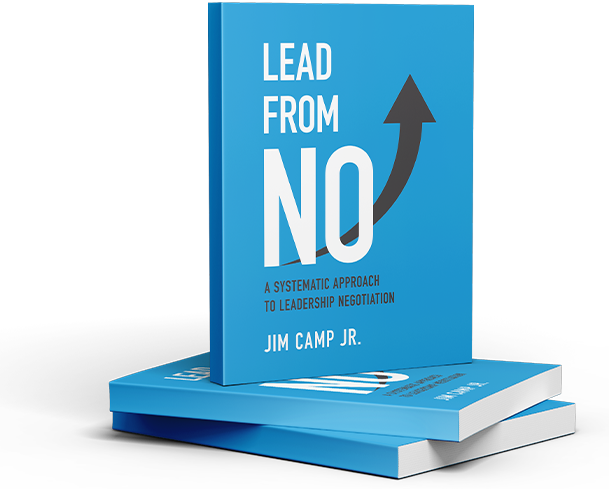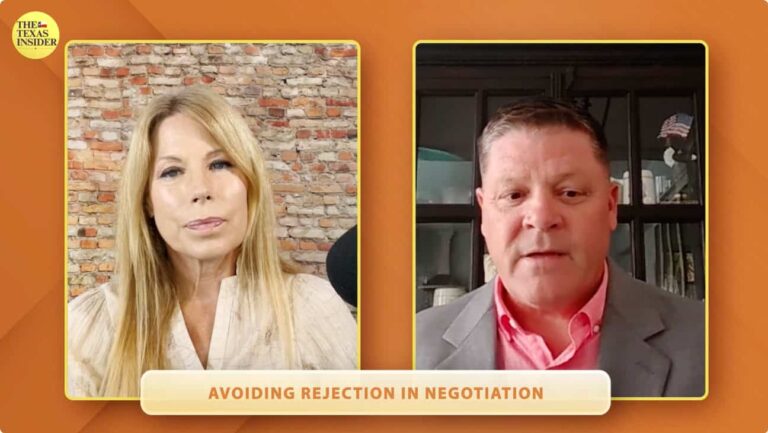We want to bring you in the trenches and give you an insider view of a negotiation. This event really happened. We take you step-by-step through our thinking and process and cover:
* The trigger that opens wallets
* Two dangerous emotions and how to stop them
* The one thing you must do before you start talking
* The hardest thing to say in a negotiation
THE OPPORTUNITY
A new, two-story, mega-fitness center was being built near my house. Each time I drove by, the building was bigger, and I felt like the workouts in my basement needed an upgrade. I wondered how much this would cost, so I went to the website and joined the wait list to get pricing.
A few weeks later, the gym emailed me and said they had early-bird pricing. To get this special price, I had to book an appointment at the gym by Friday at 8:00 p.m. (Note: This is a psychological trigger called “scarcity.” You see this all the time – and it works.)
It was Saturday morning, and I realized that I missed the deadline. It wasn’t for lack of trying. I’d emailed back and forth a few times but couldn’t agree on a time. They sent me the last email on Friday morning, and I didn’t spot it until Saturday.
SCARCITY + FOMO = NEEDINESS
While kicking myself for not reading that email on Friday, my emotions also kicked in. I pictured myself in this new, odor-free gym, pumping more iron than people 20 years younger. I also saw myself drinking a green smoothie that came from the fountain of youth.
I had FOMO – fear of missing out. I wanted that early-bird pricing and was going to call them. At this point, I wasn’t ready to pick up the phone. If I did, chances are things wouldn’t go in my favor.
In this needy state of mind, these were my thoughts:
#1 – I can tell the gym that it’s my fault for missing the deadline. Then I can apologize and beg for the early-bird pricing.
#2 – I can say that I did try to email for an appointment, and it’s a bit inefficient to go back and forth. This deadline came up suddenly. I would hope that they felt guilty enough to give me a reduced price.
Which of these did I choose? Neither. I’m a Camp Negotiator.
Instead, I implemented part of the Camp System to live in the other party’s world, not be needy, and offer the right to say no.
THE CHECKLIST
I needed a plan and focused my preparation on these points.
MISSION AND PURPOSE – To provide the gym owners the opportunity to add a family of new members before the gym opens.
PROBLEM – The problem of the fitness center is that they need new members. My problem is that I can no longer get access to the gym at the early-bird price.
WHAT DO I WANT? – I want them to make a decision to invite me to visit the gym and potentially become a new member at the early-bird price.
WHAT HAPPENS NEXT? – If they give me an offer of early-bird pricing, I’ll go to the appointment. If they don’t, I’ll work out in my basement.
THE NEGOTIATION IN PRACTICE
I put my emotions aside, had my checklist in hand, and made the call. Follow along with this summary of the conversation:
Guy: Hi, Super Fun Duper Fitness. This is Guy. How can I help you?
(NOTE: All names have been changed.)
Me: Hi Guy! I received an email about the opening of your new gym. I’m calling to make an appointment for a tour. (NOTE: Use their name and don’t start with your assumed problems.)
Guy: Sure, I can do that for you. We have an opening on the 21st at noon.
Me: That time works for me. I’m looking forward to it. The email mentioned the early-bird pricing. Is that available to me if I come on the tour on the 21st?
(NOTE: I didn’t assume that the reduced pricing was over. I want to confirm this.)
Guy: No, we had a deadline for that. The appointment had to be booked by 8 p.m. yesterday for that pricing.
(NOTE: Guy said no. That means the negotiation begins. He sounded confident and authoritative.)
Me: How much more is the price now without the early-bird? (NOTE: Get the facts. Avoid being defensive or offensive at this point.)
Guy: The price is $20 more per month, per person.
(NOTE: I let there be silence for 10 seconds, then I spoke very calmly. It’s very hard to stop talking in a negotiation; this takes practice.)
Me: So the early-bird pricing is not available to my family? (NOTE: Double-check the no.)
Guy: We had a firm cut off last night, and I can’t give you that price. I’m sorry.
(NOTE: I avoid being defensive or offensive. I was silent for about 15 seconds, longer than last time.)
Me: What do you think I should do?
Guy: I’m sorry. You can’t do anything. The price was hard on that deadline.
Me: What would you do if you were me?
Guy: This is hard. I’ve been saying no most of the time.
(NOTE: His voice was less authoritative. He also slipped and said, “most of the time.” That means he didn’t say no to everyone.)
Me: (With empathy and a calm voice.) Yes, I know, you have a tough job. I understand that you have a deadline. I was emailing about an appointment last week, but it didn’t work out.
(NOTE: More silence.)
Guy: Oh, you were in a conversation with us? Wait, let me check your record. (He leaves the phone for a minute.)
Guy: (Returns to the phone.) Because you were in a conversation with us before the deadline, I can give you the early-bird price.
Me: Thank you, that’s very nice of you. I appreciate it. I’ll be there on the 21st.
Guy: You’re welcome. Ok, I’ll send you a confirming email with directions.
Me: Great. So I’ll get an email confirming the date and early-bird pricing? (NOTE: This is the second confirmation.)
Guy: Yes, I’ll send it now. Thank you for calling, and we’ll see you soon!
(NOTE: I confirmed twice, but typically you should confirm three times before concluding.)
SUMMARY
Distinguish your wants from your needs. No one needs a fitness center membership; we only want one. Watch out for FOMO and neediness. Lose the emotions.
If I focused on challenging the deadline or beating the system, I would have looked needy.
Make a checklist before you start a negotiation.
Honey draws more flies than vinegar. Be nice. Don’t blame the other party.
Practice how to ask questions that the other party can’t answer with a “yes” or “no.”
The hardest thing to say in a negotiation is nothing. Silence is golden. We get into more trouble by saying too much. Silence gives each party time to think.
Confirm every decision three times.
Time and patience can save you a lot of money. In this case, my household can save $480 a year.
ADVANCED TACTICS
After the first no, we didn’t ask, “Are you the decision maker on pricing?” Instead, we asked, “What do you think I should do?” We didn’t escalate this earlier than we had to or annoy Guy if he was the decision maker.
We let Guy think about the solution and contribute to the solution. Get the other party engaged.
ALTERNATE SCENARIO
Guy gave in because he saw my emails and knew I tried to get an appointment. If I didn’t contact them before the deadline, what approach could I have taken?
I would have asked, “Is there anyone else that you were able to grant the early-bird price that didn’t meet the deadline?”
If Guy said yes, I’d say, “Oh, wow. Why did that happen?” Then I’d try to get myself considered under these circumstances.
If Guy said no, I’d ask, “Is there anyone else in your organization that would be able to make an exception and allow early-bird pricing?” I’d then ask for a meeting with Guy and that person. I wouldn’t cut Guy out of the conversation. If Guy said didn’t offer a name, I’d ask for the name of the general manager of the site.
IS IT OVER?
No. When I arrive at my appointment, I’m meeting with another person. There is a chance that Guy won’t pass this information to the person I meet.
That’s why I took good notes after the phone call and will have the email in hand. If they didn’t honor what Guy said, I’d follow the ALTERNATE SCENARIO section above.
AM I EXCITED ABOUT THIS?
No. I’m not excited about getting a good deal. I don’t have a deal yet. I also don’t have expectations.
All I have is the NEXT STEP – to go to the meeting.
Have no expectations. The deal isn’t done until the deal is done.





